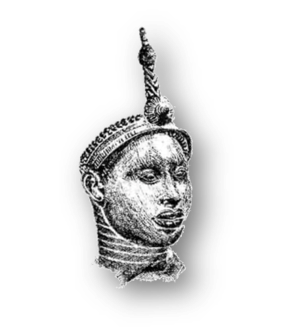Trusted by over 6000+ members
Join our community of members around the world helping you succeed.














Yoruba One Voice Worldwide is a coalition of several Yoruba Groups in all Continents of the World whose vision is to promote Yoruba core values, unity and collaborative efforts towards a prosperous and technologically advanced society in Yoruba Land
Support our course with a token.
The Yorùbá people (Yoruba: Ìran Yorùbá) are an African ethnic group that inhabit Western Africa. The Yoruba constitute about 105 million people in total. The majority of our population from Nigeria, where the Yorùbá make up 21% of the country’s population, making us one of the largest ethnic groups in Africa. Most of Yoruba people who speak the Yoruba language as a first language speakers and in particular the Yoruba language is an official language in Brazil.
The Yorùbá share borders with the very closely related Itsekiri to the so-called south- south zone in the North West Niger Delta; Bariba to the north in Benin and Nigeria; the Nupe also to the north and the Ebira to the northeast in central Nigeria; to the east are the Edo, Ẹsan and the Afemai groups in mid-western Nigeria. Adjacent to the Ebira and Edo groups are the related Igala people found in the northeast, on the left bank of the River Kwara i.e. the so-called Niger River. To the southwest are the Gbe speaking Mahi, Gun, Fon and Ewe who border Yoruba communities in Benin Republic and Togo. To the southeast are the Itsekiris who live in the north-west end of the Niger Delta. The Itsekiris are ancestrally related to the Yoruba but chose to maintain a distinct cultural identity. Significant Yoruba populations in other West African countries can be found in Ghana, Benin Republic, Ivory Coast, and Sierra Leone.
The Yoruba diaspora consists of two main groupings; one of them includes relatively recent migrants, the majority of which moved to the United Kingdom and the United States after major economic and political changes in the 1960s to 1980s. The other dates to the Atlantic slave trade and has communities in Cuba, Puerto Rico, Dominican Republic, Venezuela, Saint Lucia, Jamaica, Brazil, Grenada, and Trinidad and Tobago, and other countries
Education news all over the world.
Join our community of members around the world helping you succeed.
What real people said about Yoruba Nation Now

“ Take Your Knees off of Yoruba Nation’s neck, Buhari and Nigeria!
We Yorubas want #YorubaNationNow”

Subscribe now and receive weekly updates with educational materials, interesting posts, public events and much more!

| Cookie | Duration | Description |
|---|---|---|
| cookielawinfo-checkbox-analytics | 11 months | This cookie is set by GDPR Cookie Consent plugin. The cookie is used to store the user consent for the cookies in the category "Analytics". |
| cookielawinfo-checkbox-functional | 11 months | The cookie is set by GDPR cookie consent to record the user consent for the cookies in the category "Functional". |
| cookielawinfo-checkbox-necessary | 11 months | This cookie is set by GDPR Cookie Consent plugin. The cookies is used to store the user consent for the cookies in the category "Necessary". |
| cookielawinfo-checkbox-others | 11 months | This cookie is set by GDPR Cookie Consent plugin. The cookie is used to store the user consent for the cookies in the category "Other. |
| cookielawinfo-checkbox-performance | 11 months | This cookie is set by GDPR Cookie Consent plugin. The cookie is used to store the user consent for the cookies in the category "Performance". |
| viewed_cookie_policy | 11 months | The cookie is set by the GDPR Cookie Consent plugin and is used to store whether or not user has consented to the use of cookies. It does not store any personal data. |